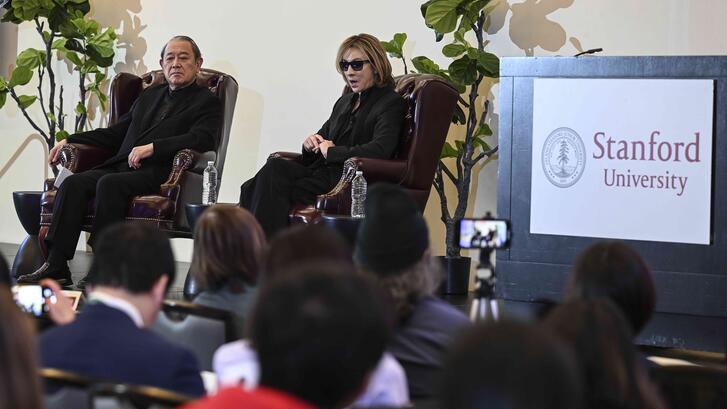Video Interview: Kiyoteru Tsutsui Discusses Japan’s Economic Diplomacy in Southeast Asia
Video Interview: Kiyoteru Tsutsui Discusses Japan’s Economic Diplomacy in Southeast Asia
Kiyoteru Tsutsui, the Henri H. and Tomoye Takahashi Professor and Senior Fellow in Japanese Studies at Shorenstein APARC, joined Visiting Scholar Gita Wirjawan, host of “Endgame,” a video podcast, to discuss a range of topics, including his work on human rights, the demographic problem in Japan, global democratic decline, and Japan’s approach to Southeast Asia as a projector of soft power.

Although Japan’s approach to economic diplomacy under the Fukuda Doctrine initially was subject to criticism because of its stance on non-interference in domestic affairs, now some are in retrospect lauding the approach, according to Kiyoteru Tsutsui, deputy director at Shorenstein APARC and director of the Japan Program, and co-editor of the recent book The Courteous Power: Japan and Southeast Asia in the Indo-Pacific Era. This reevaluation comes after consideration of relatively unsuccessful attempts by the United States to “push” democracy onto Southeast Asian countries.
The better approach is to focus on advancing the rule of law, which the Japanese have done by investing resources in establishing legal infrastructure in the region, Tsutsui tells Shorenstein APARC Visiting Scholar Gita Wirjawan, host of the popular Endgame video podcast. “Liberal democracy in the sense of the rule of law is a good sort of marketing ploy to sell to Southeast Asian countries because that leads to economic benefits, which is critical to making liberal democracy attractive,” he says.
Sign up for APARC newsletters to receive our scholars' analysis >
Tsutsui joined Wirjawan for an Endgame conversation about Japan’s approaches to foreign direct investment (FDI) in Southeast Asia and other topics. One issue that both scholars agreed upon is the difficulty in getting Americans to focus on Southeast Asia, which has been long recognized as a critical region by the Japanese. Part of the problem is proximity, of course, but the region also tends to be overshadowed in American eyes by East Asian countries.
The conversation also turned to the demographic issue Japan and other Asian countries are facing as populations age and economic growth stagnates. Tsutsui pointed out that, before 1945, the Japanese Empire saw itself as multi-ethnic; it was only after WWII that the nation was perceived as homogenous, a viewpoint bolstered by Japan’s great economic success in the 1960s and 70s. Now, however, Tsutsui says there is no choice: “Japan has to become more heterogenous,” and even conservative voices acknowledge that women need a larger role in the labor force and that immigrant labor will be essential to combat the demographic crisis.
This discussion with Tsutsui is part of an "Endgame" interview series Wirjawan is recording with Stanford experts during his residency at APARC.


